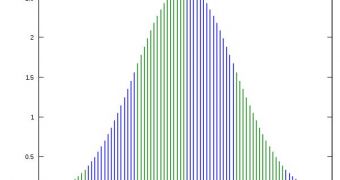According to leading experts, it may be that the century-old habit of spanking children may do them more harm than good. It may, indeed, make them move more hastily, or even teach them not to do something (for a while, at least), but it could also lower their intelligence coefficient (IQ), scientists report. The recent investigation, which was conducted on several hundred US children, shows a clear correlation between a lot of spanking and a drop in IQ levels later on in life, LiveScience reports.
“All parents want smart children. This research shows that avoiding spanking and correcting misbehavior in other ways can help that happen,” University of New Hampshire (UNH) researcher Murray Straus, who has been involved in the current research, explains. In order to address concerns that the children in the study may have had their IQs influenced by other factors, such as less education opportunities or a lower inherited intelligence, Straus reveals that, when compiling the results of the new study, he took other factors into account too, such as the parents' socio-economic status.
“You can't say it proves it, but I think it rules out so many other alternatives; I am convinced that spanking does cause a slowdown in a child's development of mental abilities,” Straus says. The expert collaborated with Mallie Paschall, a scientist at the Pacific Institute for Research and Evaluation in Maryland, on the new research. Two age groups were analyzed – about 806 two- to four-year-old children, and some 704, who were aged between five and nine. The survey was conducted for a period of four years, and the children had their IQs measured at the beginning, during, and at the end of the research.
In the first age group, all children naturally got smarter as they grew older. But those who also got spanked registered, on average, a five-point lower IQ than their peers who were not hit. For the older age group, the difference was smaller, of only 2.9 points on the IQ scale. Even if the discrepancies may seem small at first, they are statistically significant, the expert explains. Among the other factors that the team took into account when assessing IQs, the experts mention parental education and income, as well as the levels of cognitive stimulation that children received from their parents
“Contrary to what everyone believes, being hit by parents is a traumatic experience. We know from lots of research that traumatic stresses affect the brain adversely,” Straus adds. “With spanking, a parent is delivering a punishment to get the child's attention and to get them to behave in a certain way. It's not fostering children's independent thinking,” University of Texas in Austin childhood development scientist Elizabeth Gershoff concludes.

 14 DAY TRIAL //
14 DAY TRIAL //